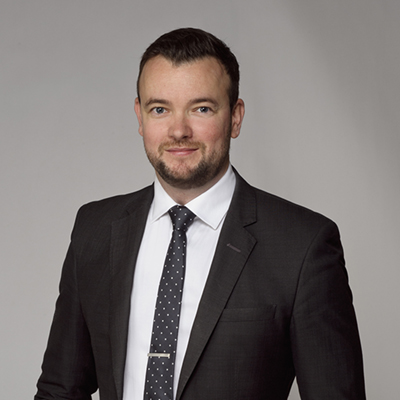05 Sep 2017
Podcast: a social and entrepreneurial mindset
In our latest podcast, The Mentor List’s David Lewis catches up with Jan Owen - social entrepreneur, innovator, influencer and author who has spent the past 25 years growing Australia's youth, social enterprise and innovation sectors.
Owen is the CEO of the Foundation for Young Australians and YLab, the global youth futures lab. Her lifelong mission is to unleash the potential of young people to lead positive change in the world.
In the nineties Owen started her social enterprise journey before there were social entrepreneurs, before there was a name for asking your consumer what they wanted. Owen was labelled a “ratbag” and “radical” and her desire to change the system was often met with apprehension.
" We need [young people’s] radical, unfettered thinking to break out of our old mindsets now." Jan Owen.
“There’s a place for social entrepreneurs in the world now,” said Owen and the way in which she once questioned the existing system is now just a consumer-led approach. “We were doing co-design and human-centred design – we were doing that before it had a name”.
Social entrepreneurs are simply entrepreneurs looking to make a social impact or to effect a social outcome. They behave entrepreneurially but in a start-up sort of way. Essentially, “social enterprises are just business where income goes back into business rather than directors and shareholders.”
Owen considers herself to be a start-up - “I am a start-up,” she said. All starts ups get to the point where they become an organisation and this is where Owen exits. Once an enterprise “transitions from being a fast-moving agile start-up to an organisation – that’s when I exit”.
For Owen her maximum social impact occurs in start-up mode and once the enterprise has been established it’s time to move on to the next project, maintaining a constantly agile mindset and maximising social outcomes.
The future of work
Moving away from her natural place as a start-up Owen joined Foundation for Young Australians (FYA) an established enterprise. With less focus on establishing a start-up Owen’s focus at FYA was to support and encourage young people regarding what is coming now and next. With an emphasis on research into what the future of work looks like and how the future generations are going to live, work and learn.
The idea that the best way to predict the future is to create it is the very DNA of FYA, supporting the largest cohort of social entrepreneurs aged 18-29 in Australia. “We have really taken to heart the research that predicts that the future of work will transform rapidly, we expect a 15 year-old today to have 17 different jobs across 5 different industries”.
We are actually creating and embedding innovation and creativity into the curriculum being taught to young people, so that they are ready for a life which is going to be a life of learning, upskilling, retraining and transformation. “It is not only about having the skills and capabilities but also the disposition as it is not an easy transition”, said Owen.
“This has meant that we need to think a lot about education and learning, what that looks like and how we ensure that those entrepreneurial types of mindsets are really embedded in the DNA of our young people. We need these skills to not only be practiced but to also be credentialed, they need to be recognised”.
Career planning is no longer about the dream job, instead it is about identifying your key skills and capabilities that you are building job-to-job. “It becomes about building a portfolio of skills and capabilities that you can then carry from place to place, it is this that will get you the next job”, said Owen.
We are still thinking in the 19th and 20th century way of here is my list of jobs which is the old way of looking at work, the new way is looking at what skills and capabilities you have been collecting and how you are able to demonstrate those across your spectrum of work.
Owen also touches on the impact of automation, globalisation and flexibility, “We do understand a lot more now about automation than we did just a few years ago but there is still a need for greater understanding, the bottom line is that we expect 7 out of 10 jobs that exist today to be completely transformed or disrupted through automation in the future. On top of that we expect 9 out of 10 jobs in the near future to have a strong digital component,” said Owen.
Listen to the audio above to find out more.
This podcast is from The Mentor List and is part of their ongoing series on learning from industry leaders and the world's top business minds about their personal experience; including their daily habits, challenges and advice for generating passion and engagements. .
For more see the Mentor List’s full coverage.
David Lewis is an Australian business professional and founder of The Mentor List.
The views and opinions expressed in this communication are those of the author and may not necessarily state or reflect those of ANZ.
editor's picks
23 Aug 2017
Does size matter when it comes to culture?
Andrew Cornell |
24 Aug 2017
PODCAST: inside the mind of truly great leaders
Andrew Cornell |
29 Aug 2017
